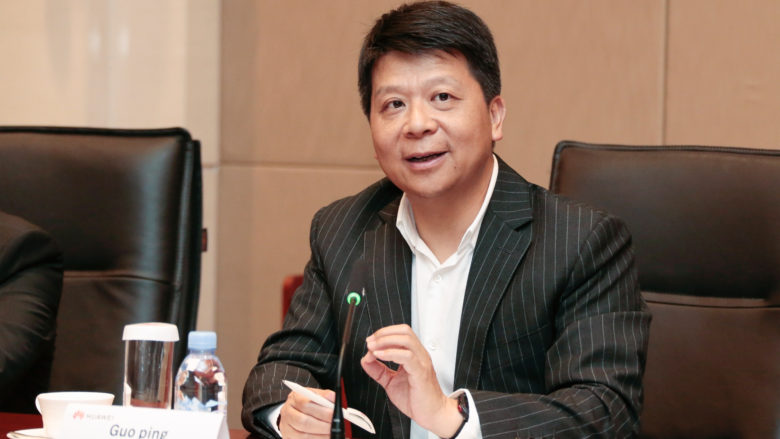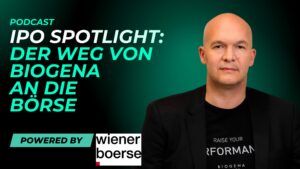Huawei: „It’s up to Network Companies to Decide Whether They Want to Eavesdrop or Not“

Despite US security risk accusations, Huawei’s business is just doing fine. The company based in Shenzhen, China, is a leader in 5G technology and the world’s second biggest smartphone vendor. It said it had shipped 59 million phones in the first quarter of 2019 and touted revenue of 179.7 billion yuan ($26.8 billion).
While some countries banned Huawei technology from forthcoming 5G networks (US, Australia) or have excluded it from public procurement (Japan), other countries like Great Britain, Denmark, Sweden, the Netherlands, New Zealand and Thailand have yet to decide their position on Huawei. Other markets are doing just fine: Huawei has shipped over 70,000 5G base stations in the first quarter of 2019 and signed 40 contracts (23 in Europe) to provide carriers with 5G equipment.
Some governments fear that Huawei’s 5G technology could be used by China for espionage purposes, and some claim that the company is influenced by the Chinese government. Huawei always denied that it has or would aid China in spying. „We are not subject to any legal obligation from the Chinese government to implant any backdoor in our products or to collect any sensitive data for the Chinese government.“
Who owns Huawei?
Huawei also claims that it is a private company in the ownership of its employees. But there is a new research paper by Christopher Balding (Fulbright University Vietnam) and Donald C. Clarke (George Washington University Law School) that states that „this claim is questionable“.
„The Huawei operating company is 100% owned by a holding company, which is in turn approximately 1% owned by Huawei founder Ren Zhengfei and 99% owned by an entity called a “trade union committee” for the holding company“, the report says. „Regardless of who, in a practical sense, owns and controls Huawei, it is clear that the employees do not.“
A Huawei representative comments on this report: „No government or organization holds Huawei equity or controls Huawei in any way. The trade union committee is not appointed by the Chinese government and any organization and is elected. The main duty of the trade union is to safeguard the legitimate rights and interests of the employees.“
Roundtable with Rotating Chairman
Huawei’s Deputy Chairman of the Board and Rotating Chairman Guo Ping sat down for a roundtable with a media delegation from three countries of the Central and Eastern Europe and Nordic regions (Austria, Poland and Turkey) in Shenzhen to answer questions on its business.
There is a lot of discussion about Chinese investment in Europe. On one side, there’s a fear of Chinese companies owning critical infrastructure in Europe. On the other side, some European companies feel that the Chinese market is not opening up enough for them. How do you view this discussion? Could you talk a little about how Huawei is investing in Europe?
Guo Ping: First of all, I’m not in a position to comment on the Chinese market on behalf of the Chinese government, or on the performance of other Chinese companies in the European market.
At Huawei, we believe that in an era of digitization and intelligence, all countries should avoid solely relying on themselves. Instead, they need to pursue extensive global collaboration so that they can leverage the strengths of others and make their products and solutions more competitive.
Let me give you an example. Dr. Erdal Arikan, a professor from Bilkent University in Ankara, wrote a paper about 5G. Huawei realized the value of this paper, and began to work with Professor Arikan and apply his research result in communications technology. Later, we turned it into a 5G standard. I think this is beneficiary to the reputation of Bilkent University, the professor himself, and also Turkey. It has also greatly contributed to the progress of 5G around the world. Such partnerships reinforce each other and benefit all parties involved.
Last year, during a visit to Northeast Europe, I learned that Austria, Turkey, and Poland all expected Huawei to invest more in their countries. I think this investment will drive technological progress, boost employment, and increase tax revenue in local communities.
In terms of the Chinese market, I cannot say whether it is open or not. What I can say is that my family has four cars and all of them are from European manufacturers. Many of my colleagues also drive European cars. So we can see that European cars are very successful in the Chinese market. I don’t see many Chinese cars in Europe. That may indicate that Chinese cars are not good enough. Huawei makes excellent telecom equipment. We hope they can sell well in the European market, just as European cars do in China.
The United Kingdom government negatively raised concerns about the cybersecurity of Huawei products and the same concerns are shared by some European governments. I would like to ask what Huawei intends to do to change this attitude and improve cybersecurity.
Thank you for your question. We understand that cybersecurity has attracted the attention of the whole society and Huawei is very willing to continuously improve cybersecurity. I will address this question from four aspects.
First, over the past three decades, Huawei has kept the industry’s best cybersecurity track record. The world has seen multiple network attacks, and in December last year, there was a network outage that impacted over a dozen countries. But none of them were caused by or related to Huawei.
Second, according to the cybersecurity evaluations conducted by third-party organizations from countries like the US, the UK, and Finland, Huawei is number one for nine of the 12 assessed indicators and is above the industry average for the remaining three.
Third, Ciaran Martin, CEO of the UK NCSC, said „Our regime is arguably the toughest and most rigorous oversight regime in the world for Huawei.“ Huawei understood their concerns, embraced these challenges, and became the first company committed to ensuring both results and processes are trustworthy. To this end, Huawei’s Board of Directors has decided to invest 2 billion US dollars to build trustworthy cybersecurity processes over the next five years. We have already completed the high-level plan for this endeavor. Everything is progressing well.
Fourth, I highly appreciate the non-discriminatory policies adopted by the EU and by certain European countries like Germany. They are paying attention to cybersecurity and asking all of the stakeholders to pay attention to cybersecurity and privacy protection. At Huawei, we hope that industry players will proactively participate in cybersceurity work to ensure that both results and processes are trustworthy.
Huawei has signed commercial contracts for 5G networks in 23 European countries. Can you tell us which countries these are? Is Austria one of them?
Based on the agreements we have reached with our customers, we can’t disclose specific information regarding the countries or carriers with which we have signed contracts. We only disclose the total number of 5G contracts. Some journalists asked whether the 40 contracts that we have announced include 5G contracts that are for trial deployments. The answer is no. All of these 40 contracts are confirmed commercial contracts for 5G.
Huawei obviously has a problem in markets in some countries, like the United States, Japan, and Australia. Will you now focus on the European market, or do you see a chance to get back in these aformentioned markets?
Our policy is to provide the most competitive products and solutions to our customers. We will do everything we can to help our customers succeed in their markets. As for certain countries that have decided not to work with Huawei for certain reasons, we are fine with that.
There’s a trade war between China and the US. What in your opinion are the US’s intentions? How does this benefit the US? Are there any disadvantages for Huawei, being a Chinese company?
It’s really unfortunate that there’s a trade war between China and the US. I’m not sure whether Huawei has become a bargaining chip in this trade war or not. Donald Trump has mentioned Huawei twice in his tweets, but I do not know how trade talks between China and the US are going. I hope that when the trade war is settled, the challenges facing Huawei can also be addressed.
How will Huawei directly respond to this international scandal that Huawei is a part of? And how would you like to regain trust of your customers all over the world? If a customer would actually ask a straight question to you: Is Huawei trustworthy? Can I use those devices without concern of being recorded or my data being sold away?
Huawei is an equipment provider. Our responsibility is to make sure that there are no backdoors in our equipment. We do not implant backdoors, and we do not allow anyone else to do so in our equipment. We do not own networks. It’s up to network companies to decide whether they want to eavesdrop or not. Huawei does not own data, either. Data is owned by network companies and government intelligence agencies.
I think you all know that Huawei does not operate any networks anywhere in the world. We just sell equipment, and our equipment is secure and trustworthy. That is our responsibility as an equipment provider.
What is the goal of the cyber security center in Brussels? When do you say it will achieve its purpose? Are there any benchmarks you want to meet? You also talked about how you appreciate the German attitude and its non-discriminatory policy towards China. Do you also expect stronger statements from other countries?
The cyber security center was opened last month in Brussels. By establishing this center, we hope to build a secure and transparent mechanism for the EU and Europe as a whole. Together with stakeholders, we are pressing ahead with relevant work, and we believe this center will play a very positive role.
We appreciate the non-discriminatory policy of Germany and the EU as a whole towards both countries and companies. I hope this policy can be adopted in all EU countries. When countries complain that the Chinese market is not open enough, have they considered how Huawei is feeling?
Yesterday morning, President Trump said that US companies must take the lead in 5G. Why can’t Chinese or Austrian companies take the lead? Why should US companies be the only leaders? If the leaders are not from the US, then the US government will attack them and find some sort of faults with them. This will no longer be a level playing field.
Technology companies are diversifying their services. Apple newly released news streaming services and Apple Card, and we all know Huawei is not a company that only depends on device selling. Do you have any investments planned in this kind of field, streaming services or payment methods? What is your priority when it comes to growing in the digital era?
Huawei will continue to focus on ICT technologies and monetize technologies rather than data.
In your annual outlook forecast, you mentioned that you would like to cut back on products that don’t perform too well. Could you specify or clarify which products or technologies are most likely to be discontinued because you would like to concentrate more on those that perform well?
At Huawei, we have a team called the Investment Review Board, or IRB, which looks at whether we continue with a product or not. They assess projects based on product competitiveness and market presence. This is a decision-making process. Huawei hopes to further focus on major technologies and solutions where Huawei has a competitive edge. We will gradually give up certain domains where we are not well ahead of competition. Of course, we will remain customer-centric. We will continue to provide support to our existing customers and properly handle the contracts we have already signed with our customers. So this is a decision made by the IRB. It is not a sudden change. It is about specific decisions based on specific products.
The trip to Shenzhen was paid by Huawei.
A comment of a Huawei representative on the research paper regarding the ownership of Huawei was added.



























